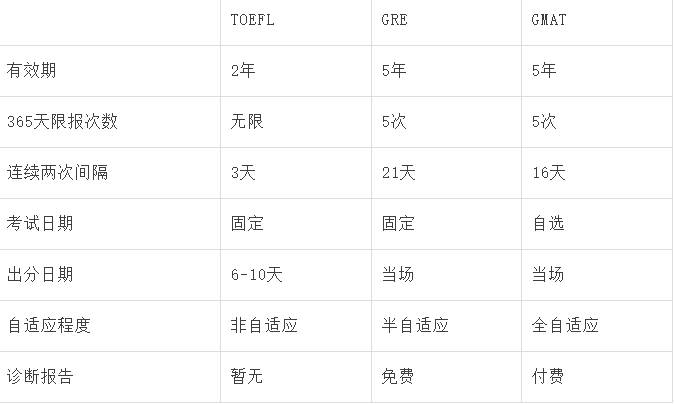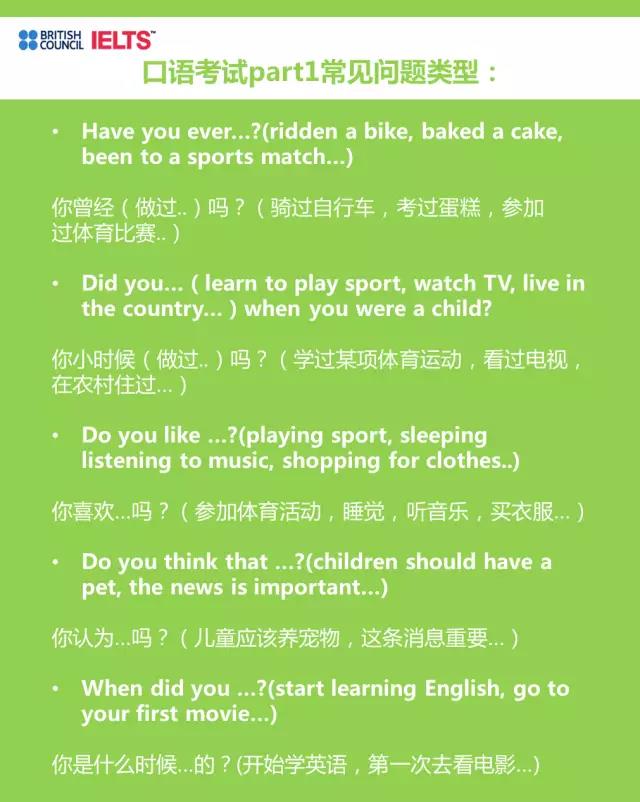托福考試中比較容易出現發揮不穩定情況的科目就是托福口語,因為口語考試較為短暫,所有回答都是一次過,今天小編給大家帶來了托福口語考場提升發揮3個關鍵點,希望能夠幫助到大家,一起來學習吧。
托福口語考場提升發揮3個關鍵點
1、注意語音和語法
很多中國考生理解為說得快就是英語流利的體現,結果發音含混不清,很多考官重點考察的發音不到位,而在詞語運用上過于簡單,信息含量低,影響考官打高分。因此,考生在陳述過程中要有豐富的抑揚頓挫的語調。對于語句重音、語調方式及停頓等,要掌握得自然飄逸。并注意口語的修辭化,對一些修辭能恰到好處地進行引用。
2、掌握好答題時間
平時考生在準備口試的時候應該強迫自己對于某個話題在最短的時間內形成一個清晰、有邏輯性的觀點以及證明過程,并試圖先用中文表達出來,以后再慢慢地過渡到英語上面去。
3、保持邏輯思維的敏銳
西方人在口語表達時會事先在頭腦中形成類似于寫作一樣的大致的邏輯框架,對開頭(提出論點),中間(發展論點),結尾(總結或辨析)進行規劃。所以學生只要應用了邏輯的開頭,以此來陳述立場,進而發展論點,就會讓考官形成思想認同,覺得你這個人邏輯思維到位,從而取得高分。而很多中國考生過于“含蓄”,回答問題毫無計劃性。以這種思維方式來與西方人進行溝通,不僅影響雙方理解,時間(通常是45秒-1分鐘)也不允許。
托福口語復試原則介紹
新托福口語考試共有六個題目,其中尤以后四個題目更加充分體現了融讀、聽、說在一起的特點。也就是說,在回答問題時,你不必慷慨激昂地陳述自己的觀點,而是要利用聽讀材料中的具體信息回答所提出的與材料有關的問題。這其實就是在考察考生是否具備了對先前讀到、聽到的材料進行快速加工(歸納、總結、融合),然后再口頭輸出(變成自己的話)的口語復述能力。因而,為取得理想的成績,在口試中,口語復述應遵循如下原則:
1.準確性原則(Accuracy)
準確性強調要準確挖掘與獲取聽、讀材料的中心思想與細節內容,不能任憑主觀臆想;同時還要注意用準確的語言輸出。
2.完整性原則(Integrity)
完整性指的是:一要全面采集與應用聽、讀材料的信息,特別是不能遺漏任何重要的細節;二是所提供的答案語言要完整。
3.客觀性原則(Objectivity)
客觀性是指要客觀陳述材料內容,不能妄加主觀評論(除非有這樣的要求)。
4.簡潔性原則(Concision)
簡潔性強調的是要采用簡練的口語進行復述,不應過分堆砌辭藻。(當然了,幾十秒鐘的時間也不允許這樣做。)語言要樸素,同時還要注意避免說出與主題無關的話語,更不能車轱轆話來回說。
托福口語考試中的句子關系
句子之間的關系多種多樣,常見的有:并列關系、因果關系、遞進關系、轉折關系和相互解釋關系。Women could and did play a part in this process of settlement. Iceland, for instance, was uninhabited, and a permanent population could only be established if women also made the journey there. (后一句的具體事例為前一句提供說明與解釋)People borrowed more and more money so that they could buy these shares. Because of this, the American people started to believe that share prices could only go up further. (“because of”明顯的因果關系)Astronomy is a science that deals with all the celestial bodies in the universe. Astronomy includes the study of planets and their satellites, comets and meteors, stars and interstellar matter, star systems and clusters. (后一句是對前一句celestial bodies 的進一步解釋)Previously it was believed that due to the Archaeopteryx’s (始祖鳥) underdeveloped anatomy, it would not have been able to fly. However, research by the London Natural History Museum into its brain developed and that it had good vision and a good sense of balance — all the requirements for a creature to be able to fly. (“However”轉折對比)
閱讀時,我們可以根據段落中出現的一些信號詞(Signal Words)來判斷句子與句子之間的關系,掌握段落發展線索,來調整閱讀速度,提高閱讀質量。1.顯示相同信息的信號詞:There has been an upsurge of interest in chamber music. Likewise opera is receiving a boost from increased record sales.“likewise”這一信號詞顯示了前面所提到的idea后面還要再一次出現。因此,閱讀時見到這樣的信號詞無須放慢閱讀速度。這樣的信號詞還包括:and, furthermore, more, than, that, also, likewise, moreover, in addition, what is more, for instance, for example2.顯示思路轉折的信號詞:
I’d like to go but I’m too busy.“but”前后是完全不同的信息描述,它向讀者顯示了作者的思路在這里有了轉折。閱讀時,碰到這樣的信號詞我們需放慢閱讀速度,以準確獲取作者真正想要說明的意思。這類信號詞還有:although, however, on the contrary, but, in spite of, otherwise, despite, nevertheless, yet3.顯示因果關系的信號詞:
As a result of the pilots’ strike, all flights have had to be cancelled.
All flights have had to be cancelled as a result of the pilots’ strike.所有航班被取消的原因是因為飛行員們的罷工;飛行員們的罷工導致了所有的航班不得不被取消。顯示因果關系的信號詞還有:for, thus, because, for this reason, so, therefore, as, since, consequently4.顯示順序的信號詞:Internet speeds communication between companies, among co-workers through video-conferences, and among other individuals. First, media companies use the Internet for online news, or to broadcast audio and video, including live radio and television programs, while individuals use the Internet for communication, entertainment, finding information, buying and selling goods and services. Second, the notion of distance disappears thanks to the Internet. People also enjoy instant messaging to exchange text messages or pictures in real time, with real-time video and sound. Finally, scientists and scholars use the Internet to perform research, distribute lecture notes or course materials to students, they communicate with colleagues, and can also publish papers and articles.抓住了這樣的信號詞就把握住了作者敘述的順序,也就分清了相對獨立的論據。這樣的信號詞包括:first, second, third, and so on, then, after, before, next, last, afterward, finally5.表示結論/總結的信號詞:In conclusion, I would like to say how much I have enjoyed myself today.詞組“in conclusion”前面所提到的一些信息將在這里被歸納總結。讀到帶有這樣的信號詞或短語的句子時,應格外留心注意,它們往往會向我們提示相關段落的核心信息。表示結論或總結的信號詞和短語還有:as a result, finally, therefore, accordingly, in short, thus, consequently, in conclusion, so, in brief, in a word。
托福口語相關文章:
★ 英語口語3000句第一課(1-94)
★ 學習資料庫
★ 英語口語
★ 托福改革后首考落幕 新增“托福移動考點”
★ 學習資料庫
★ 學習資料庫
上一篇:托福口語哪些情況特別容易說錯呢
下一篇:托福口語備考如何提升背誦效率





